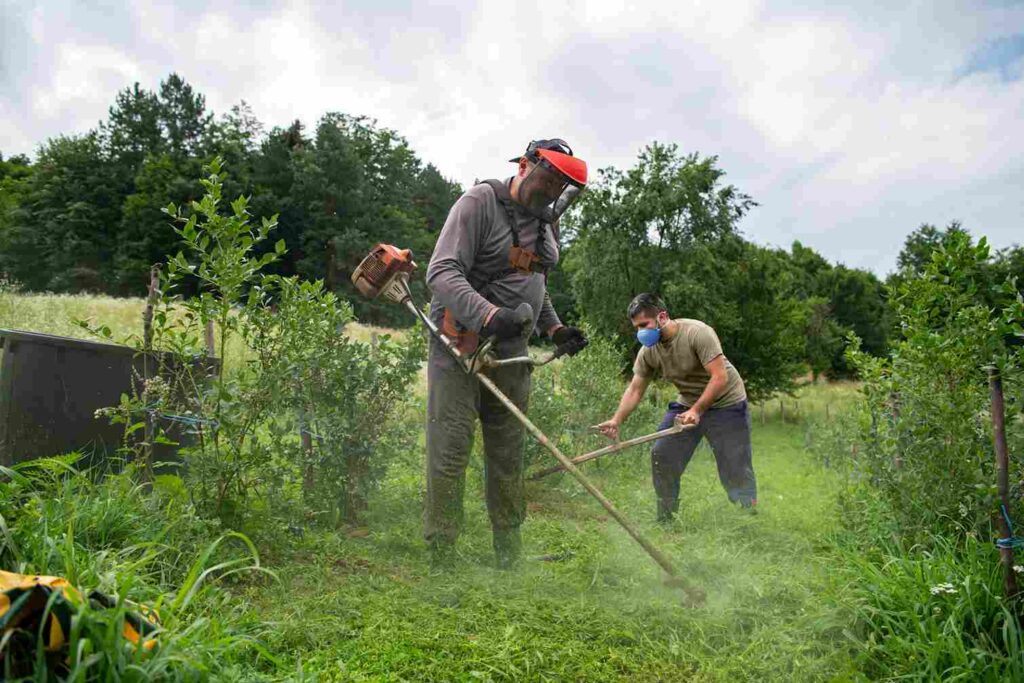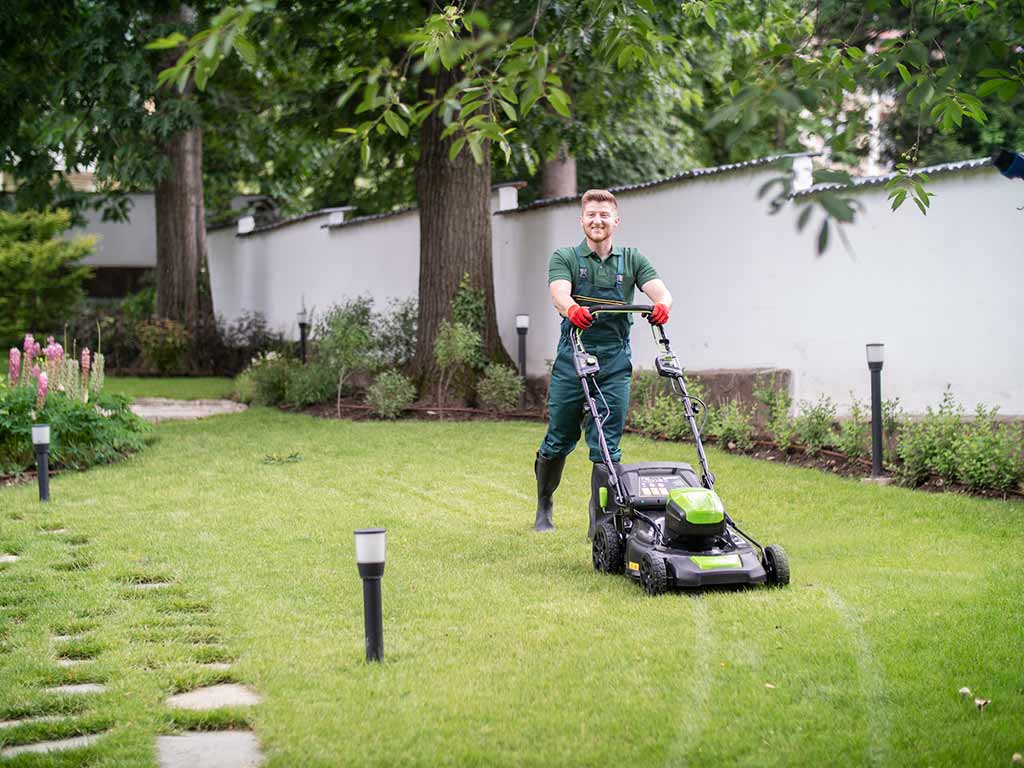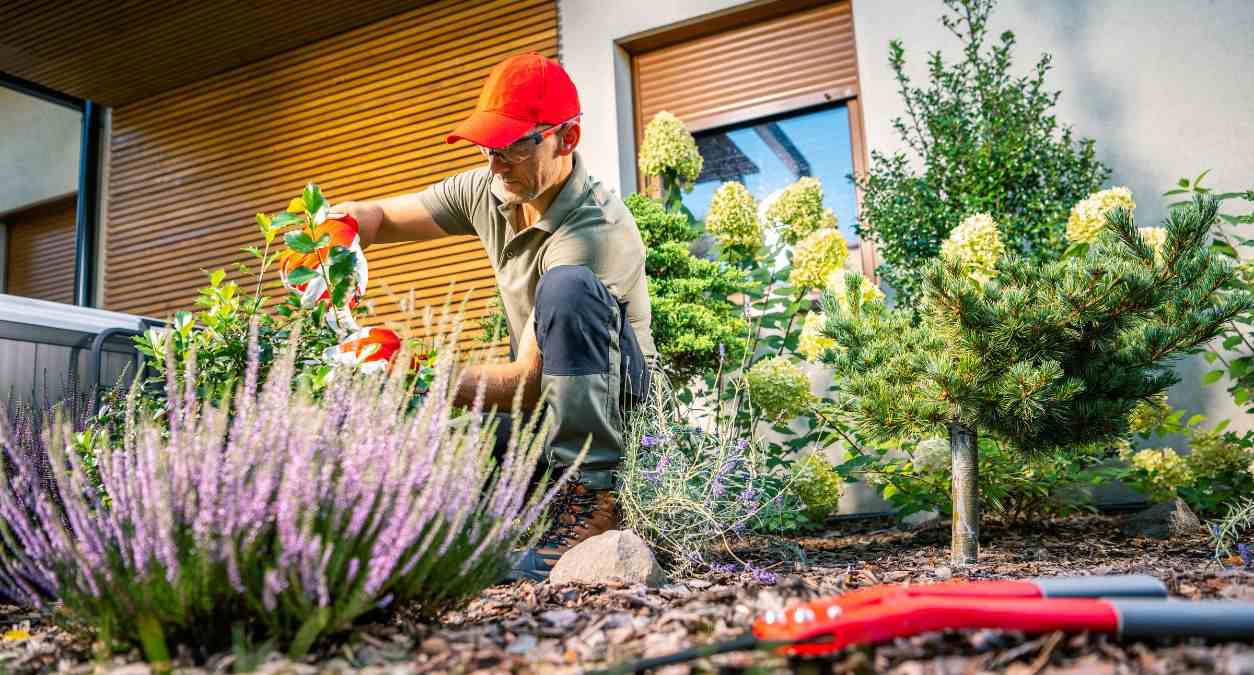Table of contents
Table of contents
Starting your own gardening business can be a rewarding and profitable venture. The gardening industry offers plenty of opportunities, whether you’re interested in providing basic lawn care or more specialised services like landscaping or garden design. In this comprehensive guide, we will walk you through the essential steps for starting your own gardening business, including costs, necessary skills, and how to find clients.
Gardening services are always in demand, whether it’s for residential properties, commercial spaces, or community projects. If you’re passionate about plants and enjoy working outdoors, starting a gardening business could be the perfect career for you. From lawn care to hedge trimming and garden design, the opportunities are endless. But how do you start a gardening business? This guide will cover everything from the basics to more advanced considerations.
Who should start a gardening business?
Before you dive in, it’s important to determine whether this is the right path for you. While starting a gardening business can be very rewarding, it’s not for everyone. Here are a few traits that make someone well-suited for the job:
- A passion for outdoor work: Gardening requires spending a lot of time outdoors, so it’s important to enjoy working in all kinds of weather conditions.
- Physical fitness: Gardening can be physically demanding, especially if you’re handling heavy equipment or performing tasks like digging or lifting.
- Attention to detail: Successful gardeners need to have a keen eye for design and maintenance. The ability to spot small issues before they become big problems is essential.
- Self-motivation: As a business owner, you’ll need to be self-driven and able to manage your time effectively.
- Interpersonal skills: You’ll be working directly with clients, so good communication and customer service skills are key to building long-term relationships.
How to start your own gardening business

Getting started involves a few key steps to ensure you’re legally compliant, well-equipped, and ready to start offering services.
Research and planning
Start by researching the gardening services market in your area. Understand the demand for gardening services and identify potential competitors. Know what they offer and what sets you apart. Defining your services is a crucial next step. You can offer everything from lawn mowing and hedge trimming to more specialised services like garden design or tree surgery.
Create a business plan
A solid business plan is essential for guiding your operations. Your plan should include:
- Services: What specific gardening services will you offer?
- Target market: Identify your ideal customers. Are you targeting residential homes, commercial properties, or a mix of both?
- Marketing strategy: How will you attract customers? Consider online marketing, word-of-mouth, and local networking.
- Financial projections: Estimate the cost of starting your business, including equipment and insurance, and project your income based on your pricing.
Legal considerations
Before you can start working, you need to make sure you’re following the legal requirements. You’ll need to:
- Choose a business structure (sole trader, partnership, or limited company).
- Register your business with HMRC.
- Apply for necessary licences or certifications. Some services, like pesticide application, require specific qualifications.
Why you should start a gardening business

There are several compelling reasons why you should consider starting your own gardening business:
- High demand for services: With more people investing in their outdoor spaces, gardening services are in high demand.
- Flexibility: As a business owner, you have control over your schedule. Whether you work part-time or full-time, you decide when and where to work.
- Satisfaction: There’s a sense of pride in seeing your work transform an outdoor space. The impact you have on a client’s garden can be immediate and visible.
- Low entry barriers: Compared to many other businesses, starting a gardening business has relatively low start-up costs and no formal qualifications are required (although they are recommended).
Cost of starting a gardening business

The cost to start a gardening business can vary depending on the services you offer and the tools you need. Here are some of the major expenses you’ll need to budget for:
Professional gardening tools
Your equipment will be your biggest initial investment. Essential tools include:
- Lawnmowers: Ranging from £200 for basic models to £2,000+ for professional-grade machines.
- Hedge trimmers: Typically priced between £100 and £400, depending on the quality.
- Pruning shears: Can cost £20 to £150 for top-quality, professional models.
- Other equipment: Shovels, rakes, pruning saws, etc., which can total £500 to £1,000.
- Transport: If you need a vehicle for your tools, a used van could cost between £3,000 and £10,000.
Insurance
Public liability insurance is essential to protect your business from claims due to accidents or damage. Basic coverage starts from around £3.96 per month, with annual premiums starting from around £60 for a small business. Additional coverage like equipment cover or employer’s liability insurance will come as additional costs.
Marketing and advertising
To attract clients, you’ll need some form of marketing. Costs could include:
- Website: A basic website might cost £500 to £1,500 for setup, plus around £50 to £100 per year for domain and hosting.
- Business cards and flyers: Expect to spend between £50 and £200 on printed materials.
- Local advertising: Placing ads or flyers in local community centres or newspapers could cost £100 to £500 for initial campaigns.
Ongoing Costs
In addition to initial start-up expenses, you’ll need to consider:
- Fuel: Regular travel to job sites can add up, particularly if you’re using a van.
- Maintenance: Tools and vehicles require upkeep, which can range from £100 to £500 annually.
Profitability of gardening

Gardening can be a profitable business, with the potential for steady work year-round. A small, solo gardening business can expect to earn anywhere from £20,000 to £50,000 per year, depending on the number of clients and types of services offered. Your earnings will increase as you build a client base and gain more experience. If you plan to hire employees or expand to offer additional services, the profitability can grow even further.
What skills do you need?
Running a successful gardening business requires a combination of practical skills and business acumen. Here are some key skills:
- Horticultural knowledge: Understanding how plants grow, their needs, and how to care for them is fundamental to the business.
- Physical strength: Gardening can be labour-intensive. The ability to work efficiently and handle heavy equipment is necessary.
- Customer service: Building and maintaining good relationships with your clients will help you retain business and generate referrals.
- Business management: Understanding basic business principles, such as bookkeeping, marketing, and managing cash flow, will help ensure your business is financially successful.
Qualifications and licences
Although formal qualifications aren’t strictly necessary to start a gardening business, they can help build credibility and trust with clients. Some qualifications and certifications to consider include:
- Horticulture courses: Courses in horticulture or garden design will help you deepen your knowledge and increase your skills.
- Pesticide application licence: If you plan to use chemical treatments, you’ll need a licence to apply pesticides legally.
- Professional memberships: Joining a professional organisation like the Professional Gardeners’ Guild can increase your credibility and offer networking opportunities.
How to register a gardening business
To operate legally, you’ll need to register your gardening business with HMRC. The process varies depending on the type of business structure you choose.
Sole trader
If you plan to operate as a sole trader, the registration process is relatively straightforward. You simply need to register as self-employed with HMRC, which can be done online through the government website. As a sole trader, you’ll be responsible for keeping accurate financial records, submitting a Self Assessment tax return each year, and paying income tax and National Insurance contributions on your profits.
Limited company
If you decide to set up a limited company, the process is slightly more complex. You will need to register with Companies House and choose a unique company name that complies with government guidelines. Additionally, you must appoint at least one director, prepare a memorandum and articles of association, and register for Corporation Tax with HMRC. Running a limited company comes with extra responsibilities, such as filing annual accounts and submitting confirmation statements.
Additional considerations
Regardless of your business structure, you may also need to register for VAT if your annual turnover exceeds the VAT threshold. It’s also wise to check whether you need any specific licenses or permits, especially if you plan to use pesticides, transport plants, or dispose of garden waste professionally.
Different types of gardening services
There are many different gardening services you can offer, and you may choose to specialise in a specific area or provide a broad range of services:
- Lawn care: Regular mowing, edging, and fertilising.
- Landscape design: Creating new garden layouts and planting schemes.
- Tree surgery: Pruning, trimming, or removing trees.
- Hedge trimming: Maintaining the shape and size of hedges.
- Garden maintenance: Regular care for existing gardens, such as weeding, pruning, and plant care.
Finding your customers
Building a customer base takes time, but there are many ways to find clients:
- Word of mouth: Happy customers will refer you to others. Providing excellent service is the best form of advertising.
- Local advertising: Place flyers in community centres, local cafes, or on bulletin boards.
- Online presence: Create a professional website to showcase your services, customer reviews, and portfolio.
- Social media: Platforms like Instagram and Facebook are great for showcasing before-and-after photos of your work.
Starting a gardening business can be a financially rewarding and personally fulfilling experience. By understanding the necessary steps, costs, and skills involved, you can confidently launch your business and begin cultivating success. Whether you’re offering lawn care, garden design, or tree surgery, there’s a niche for every aspiring gardener. By learning the ropes and investing in the right tools, you’ll be well on your way to building a thriving gardening business.
Get Gardeners' Insurance from Protectivity

*Disclaimer – This blog has been created as general information and should not be taken as advice. Make sure you have the correct level of insurance for your requirements and always review policy documentation. Information is factually accurate at the time of publishing but may have become out of date.
Last updated by

















